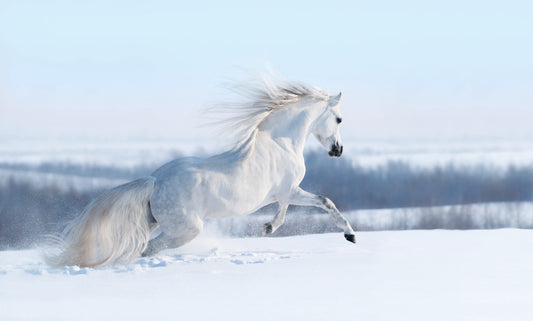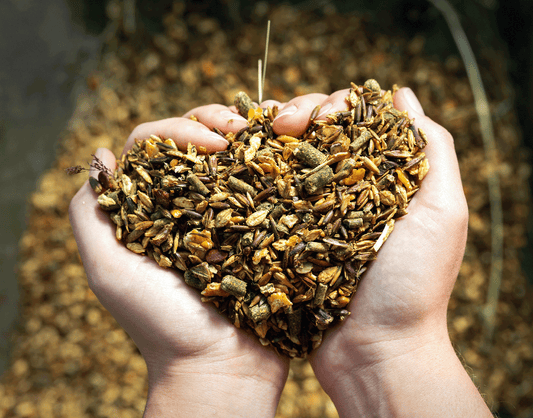Winter Care for Your Horse: Tips for a Healthy and Happy Season -
3 min

Winter brings challenges from icy cold to muddy paddocks, testing both horses and their owners.
But with the right preparation, the cold season doesn't have to be a struggle. With a well-equipped stable, smart maintenance and some extra attention, you can help your horse get through the winter healthy and comfortable.
In part 1 of this guide we discuss how to winter-proof your stable and pasture. Want to read more about nutrition and health in winter? Then go to part 2 .
1. Fresh air without drafts
Good stable ventilation is essential, also in winter. Fresh air helps to prevent respiratory problems, while draught can be harmful.
Provide adequate ventilation without your horse standing in a cold air stream. This is especially important during cold, dry periods to avoid respiratory problems.
To help your horse get through the winter in good health, it is essential to pay attention to stable ventilation, bedding and water intake.
2. Dry and warm ground cover
A comfortable place to lie down with dry bedding, such as straw or wood shavings, is essential in the winter. It prevents your horse from coming into direct contact with a cold stable floor.
This is especially important for older horses or horses with joint problems, as it helps prevent stiff muscles and joints. Be aware that the stable becomes damp more quickly in the winter due to wet hooves. Keep everything clean and refill in time.
3. Access to fresh drinking water
In winter, water intake for horses is just as important as in summer. Make sure your horse always has access to clean drinking water that is not too cold.
Frozen water troughs can be a problem in freezing weather – consider insulated or heated troughs. Horses tend to drink more when the water is lukewarm, which helps prevent dehydration and digestive problems such as colic.
A well-ventilated stable prevents respiratory problems, while dry and warm bedding provides comfort and helps prevent joint problems.
4. Use a blanket if necessary
Whether a horse needs a blanket depends on its situation. Unshaven horses with a thick winter coat usually do not need extra protection, provided they are dry and have shelter.
Clipped horses, older horses and horses with health problems often benefit from a well-fitting, breathable blanket. Make sure the blanket stays dry and the horse does not cool down due to moisture
5. Protection against mud and ice
In winter, pastures and paddocks often turn into muddy and slippery terrain. This can cause injuries and skin problems, such as mud fever and thrush.
Reinforce the ground with sand or special mats and make sure your horse's legs dry well after exercise. Regular cleaning and care helps prevent infections and irritations.
Make sure your horse always has access to fresh drinking water to prevent dehydration and digestive problems.
- Choosing a selection results in a full page refresh.
- Opens in a new window.


